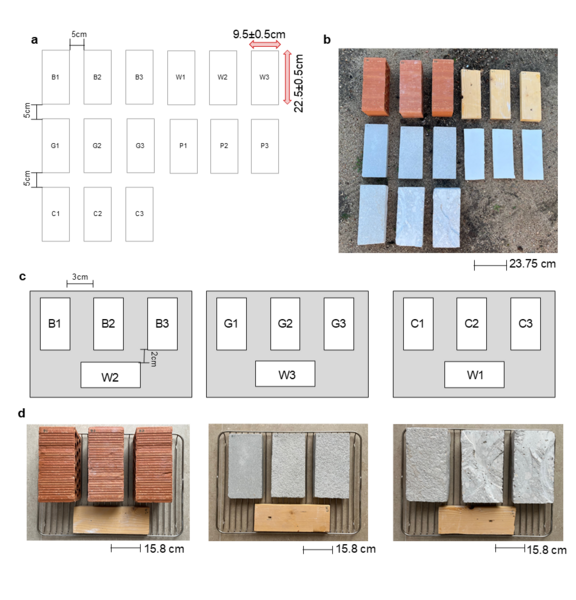
The authors examined the effect of varying glucose concentrations on cut rose longevity.
Read More...Glucose concentration and the longevity of cut roses: sugar-induced senescence

The authors examined the effect of varying glucose concentrations on cut rose longevity.
Read More...Ultraviolet exposure and thermal mass variation on surface temperature responses in building materials

The authors studied the response of various construction materials to UV solar radiation and heat.
Read More...Ethanol levels in foods ensuing culinary preparation

The authors investigated alcohol content of foods during preparation and when ready to serve to determine how much alcohol remained in the food.
Read More...Impacts of childhood adversity on relationships: Expressions of affection and social connection

The authors survey adults to assess how childhood adversity may impact adult relationships and ways of giving or receiving affection.
Read More...Gender differences in social media, sleep, and cognition in U.S. teens

The authors survey teenagers within the United States regarding the effect of social media use on sleep quality and attention span.
Read More...Impact of TCERG1 SNP on gene expression and protein interactome in Huntington’s disease

The authors assess a genetic variant within a well-known interaction partner of huntingtin that has been linked to modifying the age of onset of Huntington's disease.
Read More...Penalty kick success is unaffected by direction: Insights from right-footed world-class soccer players
Examining the correlation between Massa Medicata Fermentata and Crohn’s disease: Implications for treatment and patient safety

Crohn’s disease is a chronic inflammatory bowel condition with symptoms like abdominal pain, fatigue, diarrhea, and malnutrition. Though there's no cure, various treatments help manage it. This study explored the potential impact of Massa Medicata Fermentata (MMF), a fermented Chinese herbal medicine containing Saccharomyces cerevisiae, on Crohn’s disease.
Read More...Stress-induced genetic memory inheritance and retention in Planarian biological model

This study explored whether planaria, known for their regenerative abilities, can retain learned memories after regeneration and how stressors like alcohol affect memory.
Read More...Correlation between trihalomethane concentrations and various cancers in Massachusetts counties
.png)
The authors assess incidence and mortality rates of two cancer types in relation to trihalomethane pollutant concentrations in drinking water.
Read More...